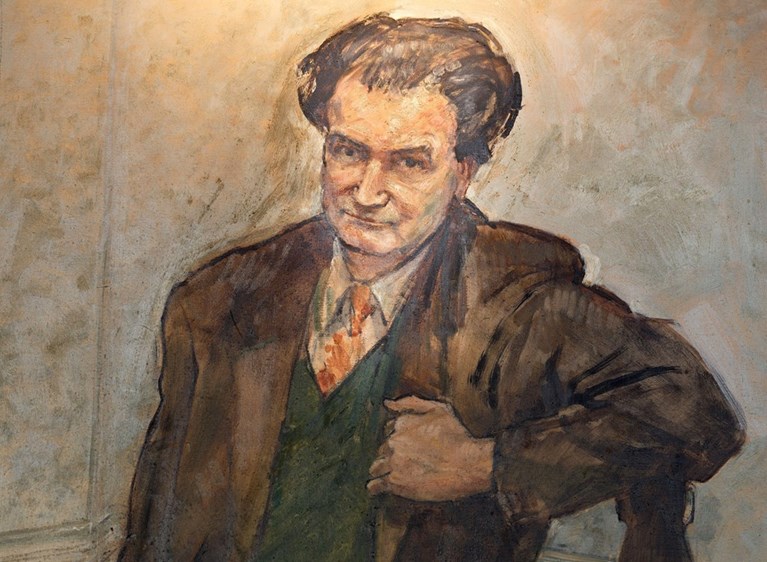GIVEN his early scholastic success, it was no surprise that Christopher Hill should proceed to an outstanding academic career. What could not have been foreseen for this son of a prosperous Yorkshire family, devout Methodists, was that for some 27 years Hill would be monitored by Special Branch and the secret service.
His radicalism took root at Balliol College, Oxford, where, as an undergraduate, he abandoned Methodism for Marxism. Widely read and linguistically able, he was more influenced by literature than by economic theory. A fellowship at All Souls, while strengthening his dislike of privilege, allowed him two years’ free time “doing nothing”. He used it for an extended visit to the USSR, “a defining experience” that led him on his return to join the Communist Party. His stay in Russia had convinced him of the need for a Marxist history of England which would “be acceptable to an academic historian”.
After two years at Cardiff University, Hill returned to a fellowship at Balliol and continued to pursue his study of the “Puritan Revolution”. What was at stake was the nature of society: “a religious and political task, not simply an expression of a theological position”.
Despite his known Communist sympathies and ending the war under surveillance, Hill’s was a conventional service for an Oxford don, ending at the Russian desk at the Foreign Office. But Hill’s hopes for domestic reform would be “dashed by the onset of the cold war”.
Post-war Hill, while he was re-establishing himself as a valued tutor at Balliol and by no means neglecting his academic writing, became fully involved in the service of the Communist Party. Of prime importance was the History Group, whose meetings Hill described as “the most exciting and stimulating of any I have ever participated in, unforgettable,” and which, Braddick holds, were “foundational for his career”. His publication of studies of Lenin and Stalin omitting any reference to the purges and gulags was, however, ill-judged.
Life down to the mid-1950s, while full of contradictions, was for Hill manageable. It was Khrushchev’s denunciation of Stalin and Russia’s invasion of Hungary which would shatter this equilibrium. While initially Hill did all he could to urge the Party to reform, in the end his resignation was inevitable, though he retained his commitment to intellectual Marxism. He could not any longer tolerate the Party’s false presentation of facts. “We have been living far too long in a world of illusions.”
With the publication of a succession of seminal books headed by the ground-breaking Economic Problems of the Church in relation to the Puritan Revolution, Hill could be described as “the leading historian of seventeenth century England”.
Because of his Marxism, Hill’s election as Master of his college attracted considerable press attention. It was, though, not an issue in the college, where the Fellows were more concerned with the balance between tradition and modernisation. In fact, Hill was to prove a key advocate of modernisation both within the college and the University itself. This was the age of the Franks report and Wilson’s “white heat of technology”.
Inevitably, there are mixed views concerning his Mastership, but Braddick notes that even the Telegraph thought that Hill had been successful in dealing with “the high noon of student unrest”. Many noted his kindness, his informality of manner, and a certain disengagement.
 AlamyPortrait of Christopher Hill for Balliol College (1968) by Derek Hill
AlamyPortrait of Christopher Hill for Balliol College (1968) by Derek Hill
After a lull on his taking up office, the 1970s brought a further burst of publications, most significantly The World Turned Upside Down, a book about the extraordinary collection of radical mid-17th-century characters “who sought to overthrow aspects of the Protestant ethic before it had triumphed” — a revolution within a revolution. Mention ought also to be made of his studies of Cromwell and Milton.
Nor did Hill let up on his retirement from Balliol. Although now he was also a regular media figure, his literary output was staggering, most notably his study of John Bunyan. Nor did he hesitate to lend his support to causes that he believed in. Braddick comprehensively dismisses the suppositions of Anthony Glees concerning Hill’s war work at the Foreign Office, though Glees himself never charged Hill with spying.
Finally, Braddick discusses the revisionists’ treatment of Hill’s output, concluding by reasserting the importance of his place both as a scholar and public figure in academia and beyond. The significance of this study in placing Hill where he belongs cannot be exaggerated.
One correction: Richard Southern was not a Catholic, but a devout Anglican.
Canon Anthony Phillips is a former headmaster of The King’s School, Canterbury.
Christopher Hill: The life of a radical historian
Michael Braddick
Verso £35
(978-1-83976-077-8)
Church Times Bookshop £31.50
















